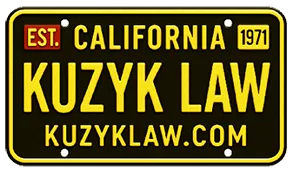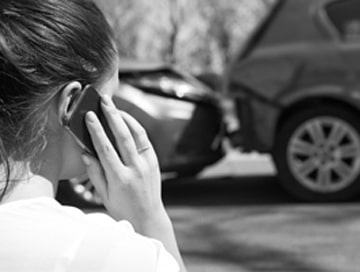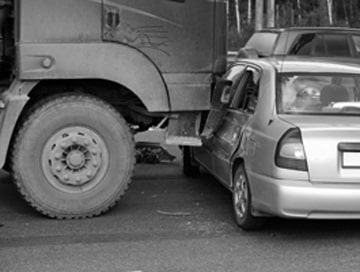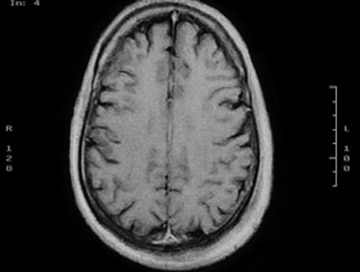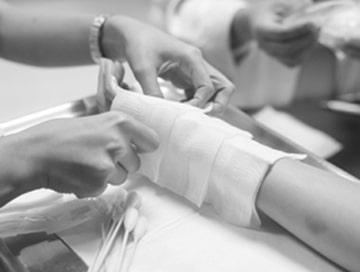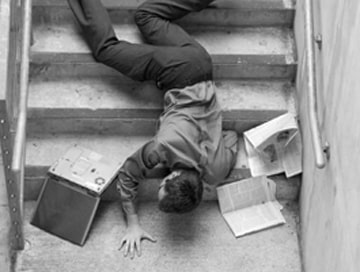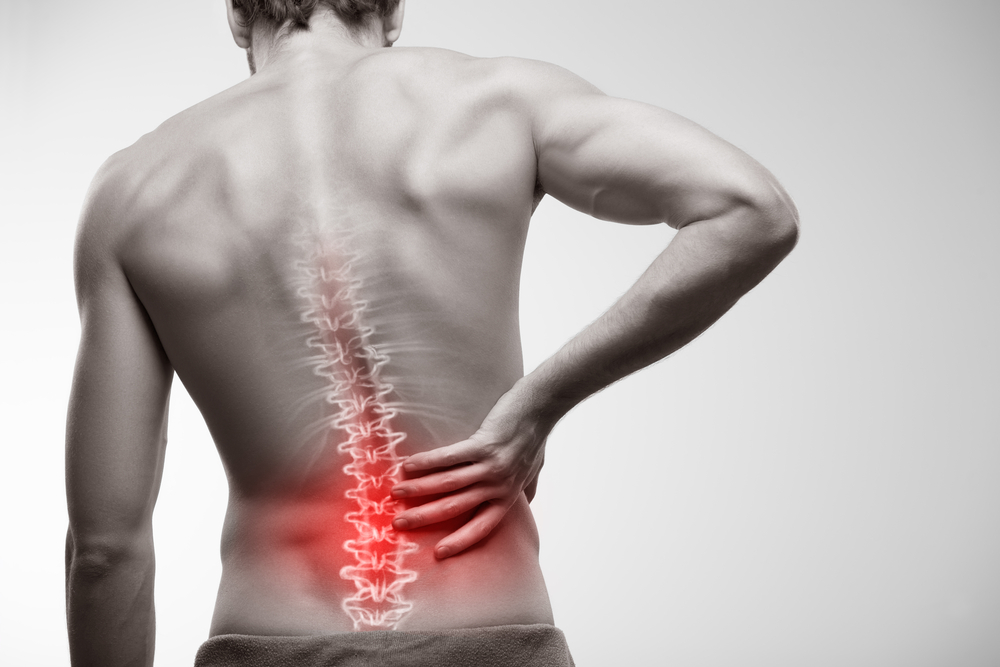
If you or someone you know has been in a motor vehicle crash, there may be no apparent injuries. However, delayed pain after a car accident happens frequently and is related to many different types of injury. It’s important to understand this phenomenon because it may affect how you proceed with insurance settlements or even legal action. Here’s what you need to know about pain and other symptoms that surface days or weeks after a motor vehicle accident.
Delayed Pain Is Not Uncommon
Ask doctors and other healthcare professionals in multiple professions, and they’ll tell you delayed pain is quite common. You leave the scene of a car accident feeling fine, or maybe you just have a few nicks. Then, out of nowhere, you feel like you’ve been hit by a freight train a few days or even a few weeks later. You may also experience delays in other types of symptoms, such as confusion, vision changes, slurred speech, and emotional distress.
There are various reasons why delayed pain and other symptoms occur. In some situations, the type of injury you experience doesn’t typically come on instantly. For example, whiplash, a type of soft tissue injury (see below), is known for taking days to come on. Brain and spinal cord injuries, in general, can take a long time to develop signs and symptoms.
Signs are things other people may observe about you, and symptoms are things you feel yourself. For instance, a rapid heart rate is a sign, as is having dilated pupils. Difficulty breathing and pain are symptoms because others, even healthcare professionals, may not notice them, but you can feel them.
Shock at the scene of the accident can also prevent you from feeling the full extent of your injuries. Shock is the body’s physiological mechanism for preserving the vital organs and keeping you alive in dire circumstances. Blood is shunted away from the extremities and toward the inner core of the torso and the brain, where it is needed most for survival. This is why some people feel chilled when they go into shock and may feel dizzy or need to lie down.
Another reason you may have delayed pain after a car accident is that you felt fine at the moment and declined to seek medical treatment. You may have told EMTs at the scene that you didn’t feel any pain and didn’t need to be transported to the ER. Or you may have thought about going on your own or seeing your own doctor but decided it wasn’t necessary. By not getting medical attention, you may have missed the diagnosis of your injuries.
Types of Injuries That Often Have Delayed Pain or Symptoms
While virtually any type of injury could have delayed pain or other signs and symptoms, the list below are injuries that are most likely to get worse days or weeks after a car accident.
Concussions and Traumatic Brain Injury
A concussion is a type of traumatic brain injury following heavy impact. You’ve probably heard about this happening in some contact sports, and it’s also very common after car accidents.
When you are in a car accident that involves brain trauma, three collisions actually occur. The first is your vehicle with another vehicle and/or object. The second is your head striking something, such as the steering wheel or car dashboard. The third is your brain hitting the inside of your skull. The brain can even move back and forth, striking the skull multiple times.
The signs and symptoms of a concussion don’t always show up immediately, but when they do, they can last for days. Seek medical attention immediately if you or a loved one experience any of the following:
- Headache
- Nausea and/or vomiting
- Swelling (“goose egg”) or bruising on the head
- Fluid or blood coming from the nose or ears
- Ringing in the ears (tinnitus)
- Blurred vision or uneven/dilated pupils
- Drowsiness
- Seeing stars or dizziness
- Fainting or loss of consciousness
- Confusion or memory loss
- Slurred speech
- Difficulty concentrating
- Impaired taste or smell
- Sleep disturbance
- Hypersensitivity to stimuli
- Difficulty with motor coordination
- Personality or behavior changes
It’s especially important to pay attention to young children after a car accident because those under a certain age do not have the verbal skills yet to tell you about their symptoms. Very young children are more prone to concussions and other types of traumatic brain injuries because their heads are proportionally larger in relation to their bodies than older children and adults. After any car accident, watch for behavioral changes, refusal to eat, vomiting, sleepiness, excessive crying, and problems following things with their eyes.
Whiplash
Whiplash isn’t technically a medical term but rather a catchall for pain or strain in the neck area. This occurs after sudden movement of the head and neck in a car accident. The same forces that cause concussions can cause whiplash; in fact, you may have both simultaneously.
Minor whiplash can usually be treated with anti-inflammatory medications and icing. However, more severe whiplash may need more aggressive treatment, including a neck brace to reduce movement during healing and prevent further injury to the area. Whiplash that does not get better can ultimately require surgical remedies.
What are the symptoms of whiplash?
- Tenderness around the head, neck, and upper back
- Stiffness or difficulty moving the head and neck (reduced range of motion)
- Radiating headache
- Knotted or hard muscles
- Pain in the neck
Back Pain and Disc Problems
Car accidents can cause back problems, depending on what happens in the crash. You may have bruising, stiffness, diffuse or pinpoint pain, and difficulty bending, straightening, and turning.
Back injury in a car accident can also cause your vertebrae to move out of alignment. Sometimes the discs that provide cushioning between vertebrae can be squeezed out of place, resulting in long-term pain and reduced mobility. Always consult with a doctor if you experience any of these issues following a motor vehicle accident.
Spinal Cord Injury
Studies show that vehicle accidents account for approximately 38% of spinal cord injuries, with contributing factors including poorly maintained roads, failure to use safety measures, low levels of car manufacturing standards, and unsafe driving habits. Motor vehicle crashes remain the leading cause of spinal cord injuries among individuals under 65 years of age. The financial impact of these injuries can be substantial, with lifetime costs often exceeding hundreds of thousands of dollars depending on the severity and level of injury.
Call an ambulance or head to the ER right away if you experience:
- Numbness or tingling in your extremities
- Inability to feel anything in your arms, legs, feet, and hands
- Difficulty moving or walking
- Loss of bladder or bowel control
- Muscle weakness
- Difficulty breathing
Abdominal Pain and Internal Bleeding
Injuries to the abdomen (the stomach area) are very common in forceful car accidents. There are many organs in the abdominal cavity that are subject to injury. Any one of them could become bruised, punctured, or ruptured, causing symptoms later. If you begin bleeding internally, it sometimes takes a while for the blood to accumulate. It is possible to bleed to death by losing blood internally.
Watch for these signs of abdominal injury and internal bleeding:
- Abdominal pain or tenderness
- Bruising or red marks on the abdomen or lower back
- Blood in the urine or stool, or a coffee ground-like substance in the stool
- Nausea and vomiting
- Sudden diarrhea or constipation
- Fever
- Rigid, hard, or swollen belly
- Signs of shock from blood loss (cold and clammy skin, blue lips and fingernails, rapid heartbeat, rapid breathing, and fatigue, dizziness, or loss of consciousness)
Strains and Sprains
Strains and sprains are common after car accidents and are considered musculoskeletal injuries. They sometimes occur in conjunction with bone fractures. These nearly always take some time to show symptoms, such as:
- Swelling
- Redness
- Heat
- Pain (diffuse or pinpoint)
- Tenderness
- Difficulty moving and loss of range of motion
- Trouble bearing weight
Although these injuries often heal on their own, fractures, tears, and dislocations require more advanced treatment by a doctor.
Emotional Pain and Suffering
Never underestimate the psychological consequences of being in a car accident. You may have both physical and emotional shock that masks more long-term emotional pain and suffering.
Consult your healthcare provider and an experienced car accident attorney if you notice any of the following:
- Depression
- Anxiety
- Panic attacks
- Extreme sensitivity to noises and lights
- Mood swings
- Behavior or personality changes
- Disturbed sleep
- Difficulty concentrating or working
- Memory loss
Tips for Making Sure Car Accident Injuries Aren’t Ignored
There are some tips you can follow to reduce your risk of delayed pain after a car accident. If you or someone you know has been in a motor vehicle crash, be sure to take these steps.
- If emergency responders, such as EMTs, paramedics, or firefighters, encourage you to go to the ER for evaluation, take their advice seriously.
- If you hit your head in the accident, whether on the steering wheel, dashboard, or headrest, you should be examined for head injury and traumatic brain injury (TBI). The same holds true if you see cuts, scrapes, punctures, or other wounds on your head or face, or if you have lost teeth.
- Look at the extent of the damage. Large dents, broken windows, being pushed long distances, and similar results indicate strong forces were exerted against your car. Was the other vehicle much larger than yours, like a pickup truck, van, SUV, or semi? If so, the likelihood of serious injury is much higher.
- Seek medical treatment immediately after a motor vehicle accident if you have a serious baseline medical condition that could be worsened by the accident. This includes cancer, heart disease, respiratory disease, diabetes, and immune disorders.
- Pay attention to certain types of consequences or displacement after the accident. The following are the most serious signs you should be checked out in the emergency room and sometimes even require air transport:
- Being ejected (thrown) from the vehicle, or other passengers in your vehicle being ejected
- Loss of life in the accident (any vehicle)
- Deployment of airbags during the crash
- Vehicle rollover or tipping on its side
- Being hit by projectiles (heavy or sharp items that become dangerous when loose during the crash) inside your vehicle
- Crashing into another vehicle or object at high speeds
Car Accident Injuries and the Pressure to Settle Quickly
When another party is at fault in an accident, their insurance must cover damage to your vehicle and your medical expenses. Their liability insurance also covers long-term care or disability, if you need it, plus lost work time. As you can imagine, in a serious accident, these costs can add up to thousands or even millions of dollars.
It makes sense, therefore, that the more significant the accident and the deeper the insurance pockets, the more you may be pressured to accept an insurance settlement quickly. If you have been in an accident with a truck or fleet vehicle, there is potentially more insurance money at stake than if you had an encounter with an individual driving their personal vehicle.
They don’t want to pay more than they absolutely have to, so they try to get you to accept their offer right away, often without any time to think about it or see if it’s sufficient. You may not have developed symptoms or been diagnosed with an injury yet if you have delayed pain.
You could be shortchanging yourself out of money to which you’re entitled by rushing to take an insurance settlement from the other party. That’s why it’s good to wait and consider consulting a car accident attorney, so you are sure to get what you are rightfully owed for your injuries and emotional distress.
Delayed Pain and Personal Injury Claims
If you or a loved one have been involved in a car accident, you may want to speak to an attorney as soon as you can. You may also decide to engage a Bakersfield personal injury lawyer after the onset of delayed pain, particularly if you are feeling pressured to accept an insurance settlement that doesn’t feel right to you. You can always contact us at Kuzyk Personal Injury & Car Accidents Lawyers under any circumstances to ensure you are getting the compensation you are entitled to after an accident.
At Kuzyk Personal Injury & Car Accidents Lawyers, we’re specialists in personal injury. Not only can we help you get the damages you deserve, but we can also communicate with insurance companies, deal with documentation like medical and accident records, and represent you in court if you decide to pursue a case.Call us at 661-945-6969 or reach out online 24 hours a day, any day of the week. We offer a free consultation, so you have nothing to lose and potentially everything to gain by getting in touch.
